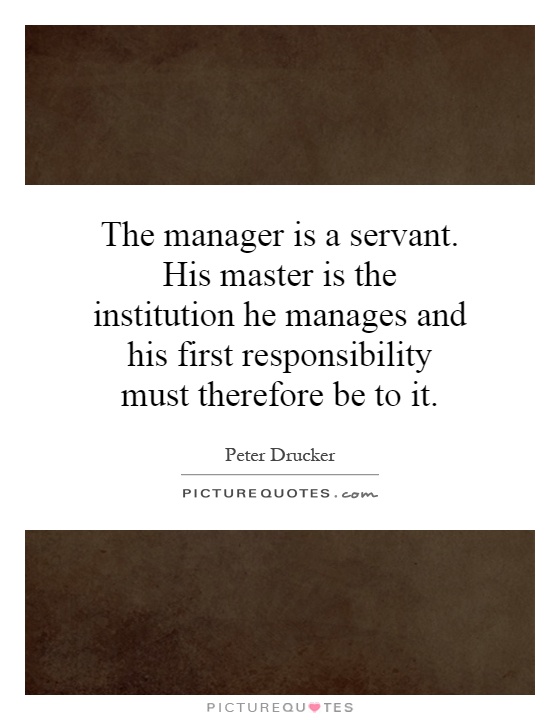The manager is a servant. His master is the institution he manages and his first responsibility must therefore be to it

The manager is a servant. His master is the institution he manages and his first responsibility must therefore be to it
Peter Drucker, often referred to as the father of modern management, believed that the role of a manager is that of a servant to the institution he manages. In his book, "The Practice of Management," Drucker emphasizes the importance of putting the needs of the organization above personal interests. He argues that the manager's primary responsibility is to serve the institution and ensure its success.According to Drucker, the manager's master is the institution he manages. This means that the manager's loyalty and dedication should be directed towards the organization and its goals. The manager is not there to serve his own interests or to further his own career, but rather to ensure the success and sustainability of the institution.
Drucker believed that effective management is about making the right decisions and taking the necessary actions to achieve the organization's objectives. This requires a deep understanding of the institution's mission, values, and goals, as well as a commitment to serving its best interests. The manager must be willing to make tough decisions, prioritize tasks, and allocate resources in a way that benefits the organization as a whole.
Drucker also emphasized the importance of leadership in management. A good manager is not just someone who gives orders and delegates tasks, but someone who inspires and motivates others to achieve their best. The manager must lead by example, demonstrating integrity, honesty, and a strong work ethic. By serving as a role model for others, the manager can create a positive and productive work environment that fosters collaboration and innovation.












 Friendship Quotes
Friendship Quotes Love Quotes
Love Quotes Life Quotes
Life Quotes Funny Quotes
Funny Quotes Motivational Quotes
Motivational Quotes Inspirational Quotes
Inspirational Quotes